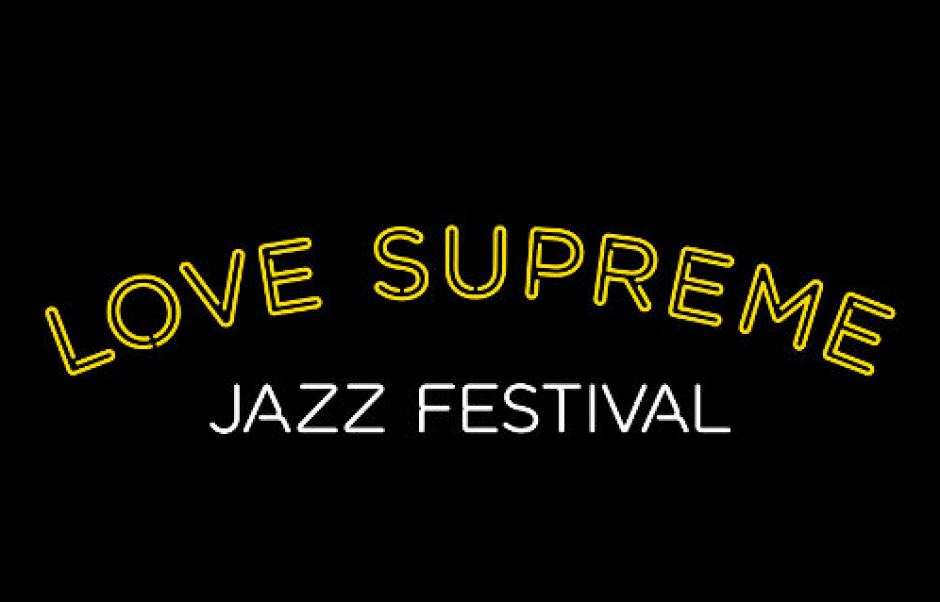Love Supreme Jazz Festival 2016: Glynde Place, July 1-3.
Suggesting that Love Supreme drifts further and further from its ‘jazz fest’ status is a bit like complaining that cats are fickle, or that policemen keep getting younger. But the auguries weren’t good: Brexit, the wettest June on record, the M25 at its customary crawl past a load of aluminium sheds just a mile from the M23 turn off, and then being woken on the first night at 3.45 am precisely by the bloke in the next tent being violently and repeatedly ill.
Whoever programmes the first acts on the Saturday gets it right more often than not. The first of two London Lianes, Liane Carroll opened in the Big Top, and filled it in both senses with her rich, bluesy tone and immaculate audience technique. Carroll is clearly a wonderful pianist and has a gutsy, dynamic way with originals and standards alike, including the first of the festival’s tributes to headliner, Burt Bacharach, with a warm version of ‘Say a little prayer’. Carroll was accompanied by her husband, Roger Carey on bass, and Mark Fletcher on drums. If you get the chance to see her at a venue near you, take it; she’s clearly on her way up to national treasure status. The other Liane, La Havas, appeared later on the main stage. La Havas, too, has a wonderful way with an audience, albeit less extrovert, and she too, did a wonderful version of ‘I say a little prayer’. La Havas is a fine songwriter and worked well both with her band, and as a brave and affecting solo performer.
First up in the Arena were Partikel’s String Theory Quartet. A trio for a number of years, they now appear with a guitarist, whose name I didn’t catch. Duncan Eagle’s tenor sax has a lapidary warmth, combining fluency and punch, and the bass of Max Luthert joins Eric Ford’s busy drumming to provide a real strength to their original, and arresting compositions. Their guitarist is on the warm, Wes Montgomery side of the contemporary guitar and blends in seamlessly with this very fine band, who’ve often worked with a ‘real’ string quartet.
Esperanza Spalding has parked her double bass and gone for the electric and a full-on theatrical presentation of her current album ‘Emily’s D+Evolution’. Her live show now consists of a narrative driven, choreographed performance where she is joined by guitarist Matthew Stevens and drummer Justin Tyson. Spalding is also accompanied by three singers, who also act out on stage and announce each part of the show with large notices, i.e., ‘Prologue’ ‘Evolution’, etc. When Spalding and Stevens get going there are sparks on stage, and she’s an astonishing bassist, and singer; the comparisons to Kate Bush are not far-fetched.
Spalding was followed in the Big Top on Saturday by Brad Mehldau, Mark Giuliana and John Scofield. They brought Mehldau and Giuliana’s electric project, and were joined by Scofield’s country blues inflected guitar. For all drummer Giuliana’s technical flair and brilliance, there’s still plenty of space in their interactions, which hark back a little to the ‘cosmi-groove’ period of the early seventies; spaced out and slightly noodly. The tact and lyricism that Mehldau brings to his acoustic trio was present here in his playing on electronic keyboard. And it all made for a constantly interesting and laid back hour.
Final performer in the Big Top was St Germain, aka French producer, Ludovico Navarre. Navarre reprised the grooves from both his wonderful ‘Tourist’ and the more recent eponymous ‘St Germain’ albums. Navarre’s touring band consists of musicians from Gabon, Mali, Brazil and Cote D’Ivoire, playing, amongst more conventional instrumentation, electric ngoni and electric cora; Navarre himself remains quietly at the back of the stage working the electronics. Navarre’s characteristic deep house dance music was both movingly and beautifully worked with and by this great band. Not jazz no, but a stand out of the festival.
Manchester was well represented this year with the Beats and Pieces Big Band who started things off in the Big Top on Sunday. Led by the inventive and energetic Ben Cottrell, the band play Cottrell’s original compositions with great verve and dexterity. Later, Gogo Penguin brought their own brilliant dexterity to the same stage. It is more than refreshing to hear an acoustic piano trio really exploring their instrumentation. Their compositional style, which works through patterns, and pushes and explores them, shows the group as a real trio of musicians and not just a piano player with a rhythm session. GoGo Penguin are not-so-quietly turning themselves into Europe’s premier trio.
When Kamasi Washington’s The Epic appeared last year, he was hailed as a commanding new voice in jazz compostion. The three CD set contained his own tunes, sweeping, warm and grand, written for large choir and orchestra, with quirky reworkings, such as a slowed down jazz version of Debussy’s ‘Claire du Lune’. Washington is touring a slimmed down version of ‘The Epic’ around Europe; he was at Glastonbury and the Glasgow Jazz Festival this week. This touring group comprises many of the same musicians from the recording sessions; but substitutes the grandeur of the recording, with a rougher, ballsier, more improvisational take on the same material. Washington’s own style on tenor sax has been compared to none other than John Coltrane. And the group’s two drummers drove proceedings hard. Other good things: Femi Temowo and the Engines Orchestra; bringing a warm and gentle version of Afro-beat, complete with string quartet.
And finally, Burt Bacharach. To see the great man go through all his hits with a good band and great singers was a simply a privilege. Not only a perfect singalong, but as the sun set in the only cloudless blue sky of the whole weekend, a perfect way to finish.

